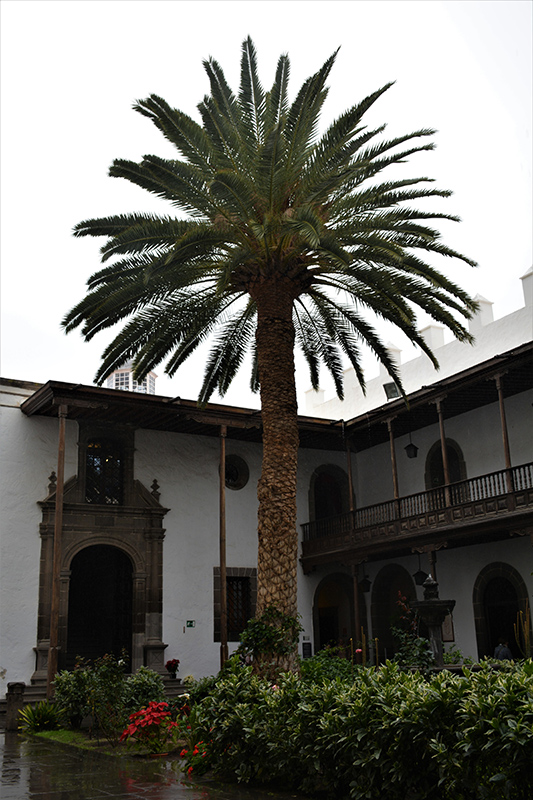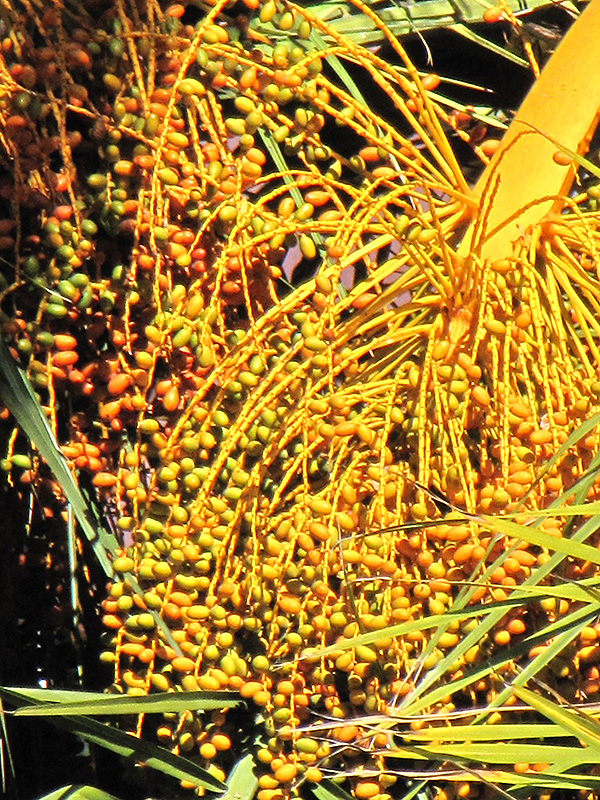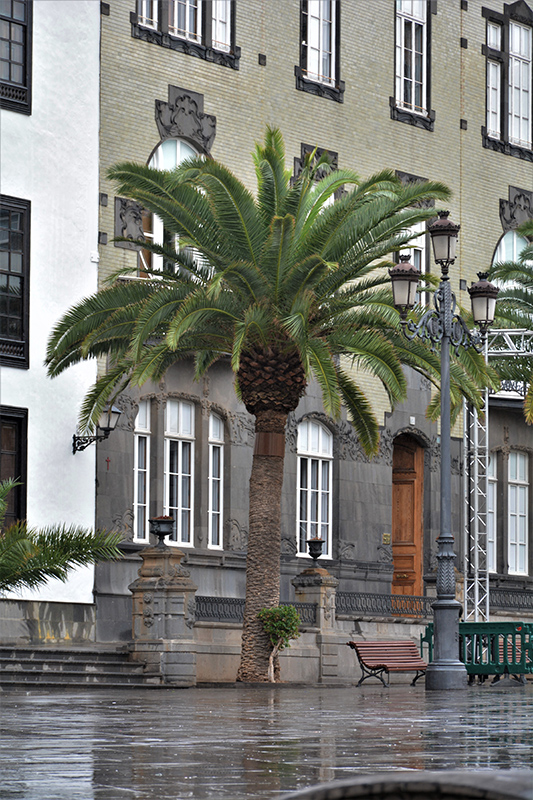Digging deeperPlant Library
Height: 60 feet
Spread: 30 feet
Sunlight:
![]()
![]()
Hardiness Zone: 8
Other Names: Pineapple Palm
Description:
This variety is widely used as an ornamental plant in warm temperate regions; trim away dead foliage to enhance appearance; will slowly mature into a stately palm and make an excellent landscape focal point
Ornamental Features
Canary Island Date Palm has attractive green deciduous foliage on a tree with the bulk of the canopy held atop a towering trunk or stem. The narrow pinnately compound leaves are highly ornamental but do not develop any appreciable fall color. It has panicles of yellow flowers hanging below the branches in mid summer. The rough gray bark adds an interesting dimension to the landscape.
Landscape Attributes
Canary Island Date Palm is a deciduous tropical plant with a strong central leader and a towering form, with a high canopy of foliage concentrated at the top of the plant. Its relatively fine texture sets it apart from other landscape plants with less refined foliage.
This tropical plant will require occasional maintenance and upkeep, and should not require much pruning, except when necessary, such as to remove dieback. Gardeners should be aware of the following characteristic(s) that may warrant special consideration;
- Self-Seeding
Canary Island Date Palm is recommended for the following landscape applications;
- Accent
- Vertical Accent
- Windbreaks and Shelterbelts
Planting & Growing
Canary Island Date Palm will grow to be about 60 feet tall at maturity, with a spread of 30 feet. It has a low canopy with a typical clearance of 3 feet from the ground, and should not be planted underneath power lines. It grows at a slow rate, and under ideal conditions can be expected to live for 60 years or more.
This tropical plant does best in full sun to partial shade. It does best in average to evenly moist conditions, but will not tolerate standing water. It is not particular as to soil type or pH. It is somewhat tolerant of urban pollution. This species is not originally from North America.
This plant is not reliably hardy in our region, and certain restrictions may apply; contact the store for more information.
A NetPS Plant Finder tool
This Plant Library is for informational purposes only. We may or may not carry the items listed. During many times of the year, we may carry many more plants in our store than are listed in the Plant Library. Please contact us directly at 303-690-4722 or visit our store for current availability and for assistance.


